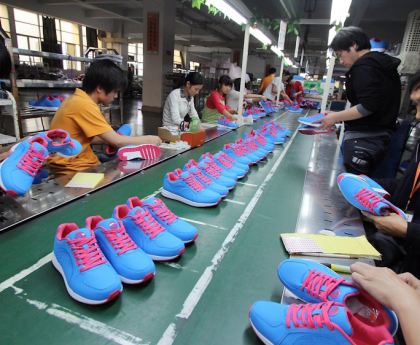As consumers become increasingly aware of their environmental footprint, the search for sustainable products has amplified, especially in the fashion industry. One component that stands out significantly is the footwear sector. With so many brands competing for attention, understanding what distinguishes a truly sustainable shoe brand is essential. It is no longer just about aesthetics or comfort; today’s consumers seek companies that are committed to ethical production and eco-friendly practices. The choices we make in our shopping habits can directly impact the planet, making it vital to recognize the hallmarks of sustainability in shoe brands. This article provides an in-depth look at the core characteristics that define a sustainable shoe brand.
Eco-Friendly Materials

Sustainable shoe brands prioritize using materials that echo their commitment to the environment. These materials significantly reduce the ecological impact associated with traditional footwear production. Eco-friendly materials can include a variety of options, each presenting unique benefits to both the planet and the consumer. Shoes constructed from recycled plastics help divert waste from landfills, while organic fabrics ensure that harmful pesticides do not endanger ecosystems. Natural rubber, harvested from rubber trees, offers a biodegradable alternative to synthetic materials, further minimizing environmental degradation.
- Recycled materials: Fabrics and plastics repurposed from waste help reduce landfill contribution.
- Organic cotton: Grown without harmful pesticides, it reduces the carbon footprint associated with conventional cotton production.
- Natural rubber: Harvested sustainably from rubber trees, offering a biodegradable alternative.
Ethical Production Practices

Beyond materials, the integrity of a shoe brand is often defined by its production practices. Brands that focus on ethical production prioritize fair labor practices, which include ensuring the rights and welfare of workers involved in the manufacturing process. The spotlight on human rights has grown significantly, and consumers now expect brands to uphold these values. The ethical production also entails a focus on creating transparency in the manufacturing process, cultivating a relationship of trust with consumers. Moreover, brands that embrace fair trade principles can often showcase their social responsibility, thereby fortifying their position as ethical players in the market.
- Fair wages: Guaranteeing that workers receive a living wage for their labor.
- Safe working conditions: Providing an environment free from exploitation and hazards.
- Employee empowerment: Encouraging workers to voice their opinions and take part in decision-making processes.
Transparency and Traceability
In today’s world, transparency is a crucial factor for consumers when selecting products. Sustainable shoe brands often prioritize providing detailed information regarding the sourcing and manufacturing of their products. This transparency boosts consumer confidence and fosters a sense of loyalty. Additionally, brands that implement traceability measures can assure customers that their shoes have been ethically produced. By sharing insights into their supply chain, sustainable brands show accountability and invite consumers to participate in their sustainability journey. This level of transparency can also affect brand reputation positively.
| Characteristic | Description |
|---|---|
| Eco-Friendly Materials | Usage of materials that minimalize environmental impact. |
| Ethical Production | Commitment to fair labor practices and safe working conditions. |
| Transparency | Clear information regarding sourcing and manufacturing processes. |
| Carbon Footprint Reduction | Strategies to minimize environmental emissions. |
| Longevity | Creation of durable products that reduce waste. |
Reduced Carbon Footprint
A commitment to minimizing the carbon footprint is paramount for sustainable shoe brands. Many brands actively engage in strategies designed to lessen their emissions, contributing to a reduction in greenhouse gases. These strategies can encompass a broad range of practices, such as sourcing raw materials from local suppliers to lessen transportation emissions. Implementing energy-efficient practices within manufacturing facilities—such as utilizing renewable energy sources—serves as another crucial component of carbon reduction efforts. Furthermore, adopting a circular fashion model can keep products in use longer, thereby reducing waste and emissions associated with producing new items.
- Local production: Manufacturing shoes closer to consumers reduces transportation emissions.
- Energy-efficient practices: Utilizing renewable energy sources in production facilities.
- Circular economy: Designing for recyclability and repair to extend product life cycles.
Longevity and Durability
Finally, sustainability also encompasses the longevity and durability of footwear. Sustainable shoe brands focus on high-quality craftsmanship that results in products designed to last over time. By promoting quality over quantity, these brands challenge the throw-away culture that has become all too prevalent. Shoes that are built to endure not only save money in the long run but also alleviate pressure on landfills. Additionally, those brands that offer repair services demonstrate a commitment to sustainability, keeping footwear in circulation longer and reducing waste.
Conclusion
In conclusion, a sustainable shoe brand embodies a comprehensive approach, integrating eco-friendly materials, ethical production practices, transparency, carbon footprint reduction, and a focus on longevity. As consumers, we carry the power to impact the environment through informed purchasing decisions. By supporting brands that adhere to these principles, we contribute positively to the planet and inspire a gradual shift within the industry towards more sustainable practices. Every small change can lead to significant progress and pave the way for a more environmentally responsible future.
Frequently Asked Questions
- What are eco-friendly shoe materials? Eco-friendly shoe materials include recycled materials, organic cotton, and natural rubber.
- How do I know if a shoe brand is ethical? Look for brands that promote fair labor practices, provide transparency in their supply chain, and are certified by reputable organizations.
- Why is transparency important in shoe brands? Transparency allows consumers to understand the origins of their products, ensuring their purchases align with ethical and sustainable values.
- What can I do to support sustainable shoe brands? Research brands before purchasing, opt for quality over quantity, and choose products made from sustainable materials.





